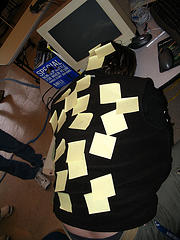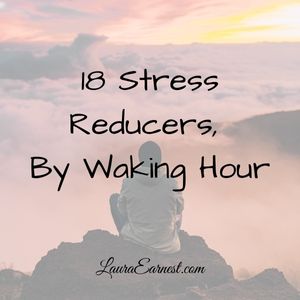
Why Task Lists Will Not Make You Productive
Mondays are productivity days at SimpleProductivity blog.

An acquaintance of mine is constantly making lists. She makes them on old envelopes, scratch pads, her phone, her laptop, her email and even her hand. Yet she is one of the most scattered, disorganized and unproductive people I know.
She doesn’t know the secret: lists alone won’t make you productive.
The Purpose Of Task Lists
Lists exist simply as a place to write things down. They are lines of text that represent tasks that need to be done. But they are not repositories of things to be ignored, places to brainstorm, or jumbles of unrelated ideas.
Task lists are a great tool, but only if they used in a productive way.
The Downfalls of the Typical List User
- Lists Are Incomplete
- Many people will make lists of things, but leave stuff out. My mother used to make lists of dishes to put on the table for large holiday meals, but she would leave things off the list because she knew she would remember them (but she didn’t, always). Many task lists leave out bits and pieces — things that need to be done — and that is their downfall.
- Lists Are Vague
- Lists are often vague and unclear, leaving the reader in doubt of what needs to be done. I am guilty of this from time to time. I looked at a daily list I had made at work last week, and asked my tech lead what she thought “world 2012” could possibly mean. We still don’t know.
- Lists Are Ignored
- Lists are great ways to get things out of your head; however, if you then ignore them, they do no good. Your brain will become used to not trusting you and spin up, reminding you of things all the time. (There’s a reason David Allen calls it a “trusted system.”
How To Use Lists
Lists, when used in a productive manner, can be a second brain, and help you out. Write it down, look at the lists regularly, and you will find that they are a big boost for getting things done. Here are qualities of a successful list system:
- Minimize the number of lists you have. Having lists everywhere is an invitation to lose one (or more) of them. While I am not a fan of one ginormous list, I think it makes sense to minimize the lists you have.
- Have different types of lists. If you need to go grocery shopping, you do not need to bring the list of things you need to do next week. Segregate your lists in a way that makes sense to you: shopping, home, work; now and later; or something like that.
- Write everything down. Don’t leave some things in memory and write everything else down. It is better for your brain to build the trust that everything will be in the list and dealt with, or it will keep reminding you about things you need to, on the list or not.
- Be specific. The more detail that you put into the list about what you have to do, the better off you will be. If you don’t get to take action on an item, will you know what it is in 2 weeks?
- Use your lists to plan your day. In order to be effective, lists have to be used. Review your lists after you make them. Are there things on there that don’t belong? Take them off. Are there things that need to be looked at later? Move them to another list you will review later. Take what’s left and figure out what you can get done today.
How do you use task lists? Do you make lists for sake of making lists? Or do you use them? Share below.
Photo by mrebert





One Comment
marquita herald
Great tips! I’d be lost without my ‘to-do’ list, but based on your advice I’m using it pretty well. I keep only one list and it’s actually a 2 page running list of my goals for the month that’s on my computer (since I work at home that means it’s in front of me pretty much all the time). The first page has my priorities for the day – the second my goals for the week and then the month; that way it’s easy to take a look at where I am at any given point and move tasks forward as I progress through the month. I set three BIG rocks for each day and at least one of those must be directly related to a big/long term goal. Like most people I have lots of other things to do each day that keep me and my business moving forward – but I always make sure that I get to those three big rocks.